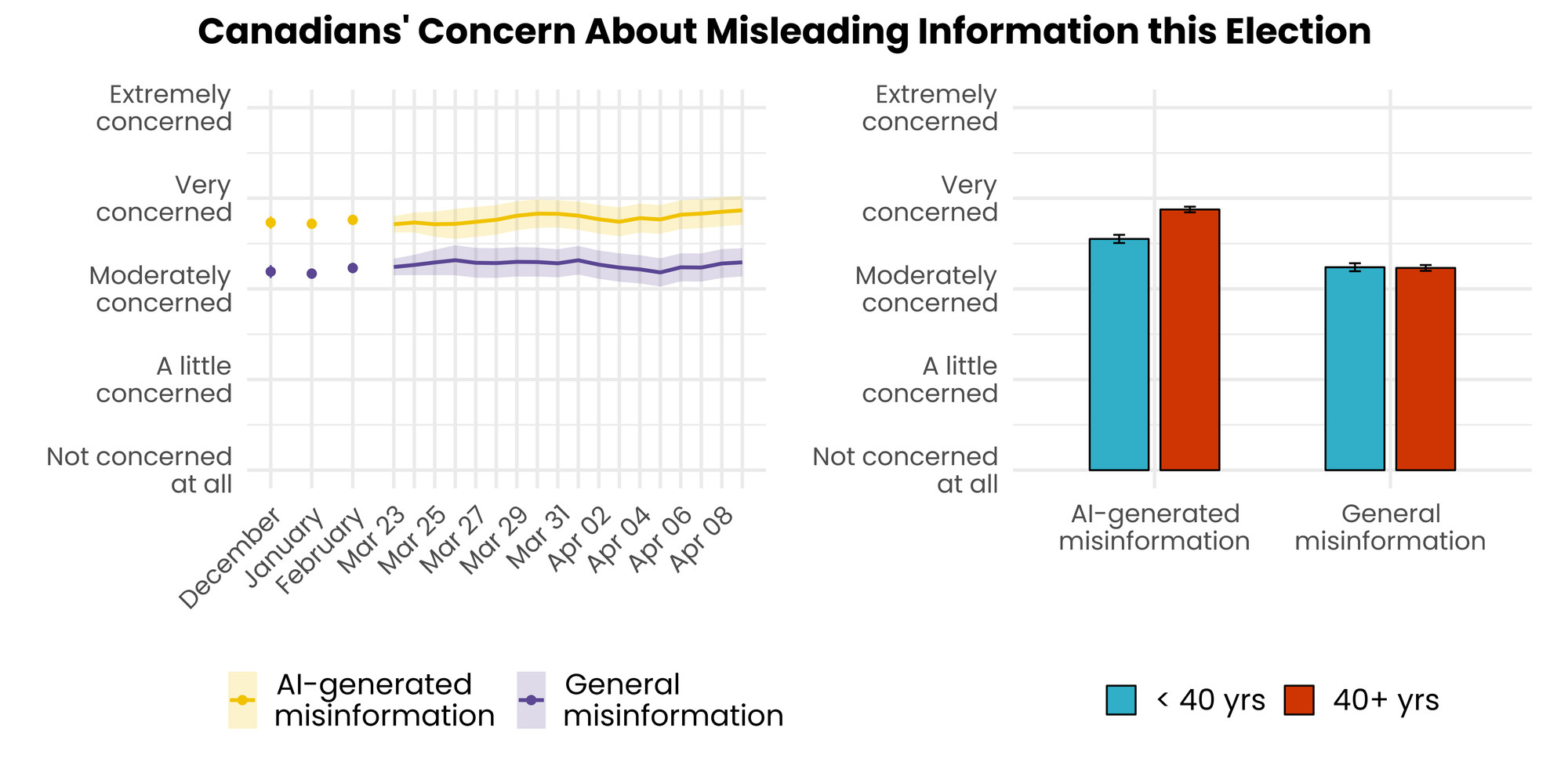Media Ecosystem Observatory on Bluesky
WEEKLY UPDATE: WEEK 3 OF CANADA’S 45TH FEDERAL ELECTION🚨
As Canada approaches its federal election, we’re witnessing a surge in generative AI (GenAI) content that poses serious challenges to the integrity of our information ecosystem. 🧵⬇️ #GenAI #Deepfakes #CanadaElection2025
alt text
The image shows two graphs titled “Canadians’ Concern About Misleading Information this Election.”
The left graph displays trends over time (from December to April 8) showing concern levels about two types of misinformation:
- A yellow line representing “AI-generated misinformation” which remains consistently in the “Very concerned” range
- A purple line representing “General misinformation” which stays in the “Moderately concerned” range
The right graph shows a bar chart comparing concern levels between two age groups (represented by blue bars for “<40 yrs” and red bars for “40+ yrs”) regarding:
- “AI-generated misinformation” - where older adults (40+) show higher concern levels than younger adults
- “General misinformation” - where both age groups show similar, moderate levels of concern
Both graphs use a vertical scale ranging from “Not concerned at all” to “Extremely concerned.” The data suggests Canadians are generally more concerned about AI-generated misinformation than general misinformation, with older adults expressing the highest level of concern about AI-generated content.
Generative AI refers to tools that can create synthetic content, like text, images, videos, or audio, by analyzing large datasets. While useful, these tools can be misused to create fake content that’s hard to distinguish from the real thing.
This technology enables the creation of convincing fake media—photos, videos, and voiceovers—of people doing or saying things they never did. In this election, it’s fueling confusion and disinformation.
Since the campaign began, we’ve seen numerous cases of GenAI being used to create fake content circulating across platforms like Facebook, Instagram, TikTok, and X. These often include memes mocking politicians.
Despite the scale of AI-generated content, there’s been minimal public discussion in Canada about its impact. Most conversations are centered on deepfakes and bots, often fueled by partisan debates over AI’s role in politics.
Surveys show Canadians are increasingly concerned about misleading information, especially among older generations. The rise of AI-generated content heightens this fear. … Canadians are encouraged to report suspicious content to our tipline. This helps us investigate and respond quickly to emerging threats. Don’t let disinformation disrupt our democracy.
English tipline: www.cdmrn.ca/digital-thre…
French tipline: www.cdmrn.ca/menace-numer…


